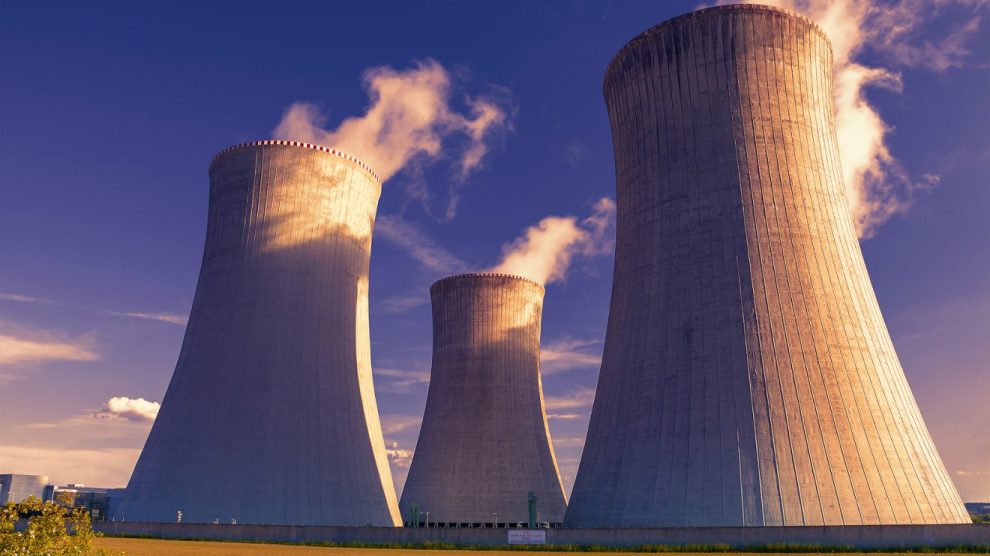Czechia will quit coal by 2033, and wants to boost its nuclear energy capacity. Environmental groups say the plan is not bold enough and risks missing the country’s Paris climate agreement targets.
Czechia wants to phase out the use of coal in energy production by 2033 while increasing the country’s reliance on nuclear and renewable sources, the country’s new government announced in a policy programme published on January 7.
“We will create conditions for an energy transformation and the development of coal regions so that a shift from coal will be possible by 2033,” the programme said.
- Rosatom set to be barred from Czech nuclear power plant tender
- Romania confirms coal exit, but environmentalists voice concerns over gas plans
- When will the Western Balkans kick its coal addiction?
According to environmental campaigners, however, 2033 is three years too late to be compatible with the UN Paris climate agreement.
“It’s momentous that the Czech government understands that we are in the end game for European coal, but its 2033 coal phase out commitment means it’s getting off on the wrong foot,” says Mahi Sideridou, director of Europe Beyond Coal, a pan-European campaign group.
“The Czech government knows all too well that climate science tells us that European countries need to phase out coal by 2030. It must accelerate the plan.”
‘A clear signal to the energy industry’
The previous Czech government launched a coal commission in 2020, which returned three coal phase out scenarios: 2033, 2038, and 2043, before formally recommending 2038.
All scenarios were modelled on an Emissions Trading System price of 30 euros per tonne in 2030 despite prices already being above 80 euros per tonne. They also assumed what Europe Beyond Coal calls “an unnecessarily modest growth in renewable energy production”, and did not foresee any coal plants closing before 2029.
“We see country-level coal exit plans accelerating across Europe and believe that in the end, Czechia will phase out coal before 2030, like the other responsible and developed European countries,” says Lukáš Hrábek of Greenpeace Czech Republic.
“But even the inadequate coal phase out date of 2033 sends a clear signal to the Czech energy industry that the plans to expand Bílina mine or to retrofit old coal power plants have to be abandoned now.”
Alongside the government’s coal phase out pledge, the market is also beginning to move. Czech utility ČEZ has announced it will drastically cut coal from its power and heating operations, lowering the amount of electricity it produces from coal from 39 per cent to 12.5 per cent by 2030.
Meanwhile, reports by BloombergNEF and UK think tank Ember show that a 2030 coal exit can be achieved if economics are left to determine the energy mix, and investments in renewable energy production are made at a rate similar to other EU countries.
“Now that Czechia finally has its coal phase out date, it is important to focus on managing the transition from fossil-based to renewable-based economy. Many precious years have been lost due to the indecisiveness of the previous governments. It is time to start taking just transition seriously and make sure the people in the coal mining regions are being heard and supported,” says Kateřina Davidová, project coordinator at the Centre for Transport and Energy.
Expanding nuclear capacity
Coal-fired power plants currently generate almost 45 per cent of Czechia’s electricity. Much of the rest is generated by nuclear power, which the country’s new government – installed at the end of last year – now wants to expand.
In its programme, the government said it would support nuclear power development, including the construction of a new reactor worth around six billion euros at Dukovany, one of two nuclear power plants in Czechia, as long as “Russian or Chinese firms will not build it”.
Last year, Czech officials said that they would exclude Russia’s nuclear monopoly Rosatom from taking part in a tender to upgrade Dukovany following revelations that Russia was behind a deadly 2014 blast at an arms depot.
On January 1, the European Union prompted a backlash over plans to label nuclear and gas as “green” investments, with Germany describing the proposal as “greenwashing” and Austria repeating its threat to sue the European Commission.
The EU said that it sees a role for gas and nuclear “as a means to facilitate the transition towards a predominantly renewable-based future”.
Unlike many news and information platforms, Emerging Europe is free to read, and always will be. There is no paywall here. We are independent, not affiliated with nor representing any political party or business organisation. We want the very best for emerging Europe, nothing more, nothing less. Your support will help us continue to spread the word about this amazing region.
You can contribute here. Thank you.



